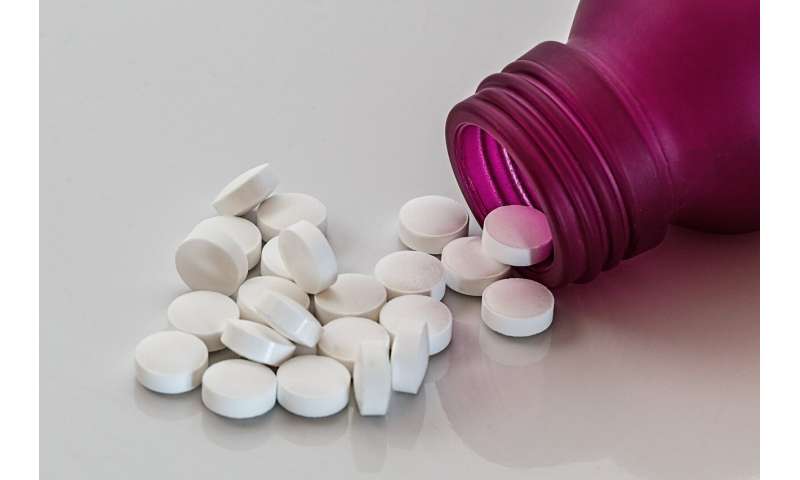
Barely three months ago, the anti-malarial drug that President Donald Trump touted seemed like such a sure bet against COVID-19 that Susanna Naggie had a tough time setting up a national clinical trial comparing it to placebo. Colleagues said giving a fake pill would be unethical since the real thing might save lives.
Now, hydroxychloroquine, or HCQ, has fallen into such disfavor that healthcare workers are leery of Naggie’s trial. Called HERO (a loose acronym for HEalth Care Worker pROphylaxis Against COVID-19) it is designed to see if the drug can protect them from infection.
“Our original recruitment goal was 15,000,” said Naggie, vice dean for clinical research at Duke University School of Medicine. “We are reevaluating that because, with everything that’s happened, it has certainly decreased interest among healthcare workers in participating.”
Of all the hundreds of existing drugs being tested against the coronavirus, it is safe to say HCQ and its cousin chloroquine have been the most contentious. HCQ was rushed into clinical use based mostly on desperation and Trump’s endorsement of what he called “a game-changer.” So much was diverted that people who use the drug for its proven uses feared shortages and escalating prices.
Then rigorous studies showed it didn’t help treat or prevent COVID-19. Last month, the U.S. Food and Drug Administration revoked its emergency use authorization, and warned of potentially deadly side effects. Soon after that, the World Health Organization stopped an international treatment trial of HCQ, and the National Institutes of Health pulled the plug on two big studies—one that appeared to be futile, and another that couldn’t recruit enough participants.
Yet researchers are not giving up on HCQ. Far from it. Hundreds of studies around the world—including dozens in the U.S. and some in Philadelphia—are continuing, according to clinicaltrials.gov, the U.S. government website that lists trials. (The FDA now says the drug shouldn’t be prescribed for treating or preventing the coronavirus except in a trial.)
Why keep investing in a seeming loser? The most common answers: Studies to date have not been definitive. Results need to be confirmed, or “reproduced,” by different research groups. And finding even a glimmer of benefit would be valuable against a virus that is so far unstoppable.
But pride, prejudice, and protocols may also be driving hope against hope.
The University of Pennsylvania is continuing two trials—at least until the independent board that monitors safety analyzes the latest data. One trial is testing HCQ as a treatment for COVID-19 patients quarantined at home. The other study is testing HCQ to prevent infection in health care workers who are at high risk because of their jobs.
“The overall enrollment rate into research studies has decreased primarily because the numbers of COVID cases has decreased” locally, emailed Emma Meagher, chief clinical research officer for Penn’s Perelman School of Medicine. “COVID-positive patients and healthcare workers continue to be enrolled in the two trials.”
HCQ has long been used to treat malaria and rheumatoid conditions such as arthritis and lupus.
In theory, HCQ could curb the coronavirus by reducing inflammation, inhibiting viral replication, and blocking enzymes that the virus uses to break into lung cells. Scientists in China, where the virus emerged in December, found HCQ kept the coronavirus from infecting monkey cells in lab dishes. Circumstantial evidence from small studies of hospitalized patients also hinted at effectiveness.
But gold standard studies—which compare a drug to a placebo or usual care to see whether changes in the test group result from the treatment—have repeatedly dashed hopes.
Last month, British researchers abruptly stopped a large trial of HCQ because it did not help hospitalized patients. After 28 days, 25.7% of patients on the drug had died, compared to 23.5% who received usual care—a difference that was not statistically significant, meaning it could be by chance. There was no beneficial effect on length of hospital stay or other outcomes.
“Hydroxychloroquine and chloroquine have been used very widely to treat COVID patients despite the absence of any good evidence,” said study leader Peter Horby, an infectious diseases specialist at the University of Oxford. “Although it is disappointing that this treatment has been shown to be ineffective, it does allow us to focus care and research on more promising drugs.”
The potential of HCQ has been dimmed not just by bad results, but suspected fraud. In early June, The Lancet retracted a headline-making study that concluded HCQ might actually increase the risk of death. “We can no longer vouch for the veracity of the primary data sources,” the journal said.
The hope that HCQ might work to prevent disease was undermined by a University of Minnesota study published in the New England Journal of Medicine. The drug or placebo was given to 821 people who had recent close contact with a confirmed case of COVID-19. About 12% of those on the drug got sick, compared to 14% on placebo—again, a difference that could have been by chance.
However, the study had a big limitation: most people who got sick did not have a diagnostic molecular test to confirm COVID-19.
“Testing was in very short supply at that time,” explained Radha Rajasingham, an infectious disease specialist and co-leader of the study.
The Minnesota trial also could not rule out the possibility that HCQ can decrease the chance of infection if taken before exposure to the virus.
Minnesota is now doing a study of “pre-exposure prophylaxsis,” or PreP.
“I think for something to be used across the country, it would be nice to see a strong reduction in infections—50%,” said Rajasingham. “If it’s something more modest, it would be hard to say whether the side effects are worth it. The drug can cause diarrhea, nausea, drug interactions, and heart arrhythmias.”
The HERO study, led by Naggie at Duke, is also testing pre-exposure prevention. But Naggie thinks even a 20% reduction in infection risk would be a win. And she stresses that HCQ is generally well tolerated.
Source: Read Full Article
